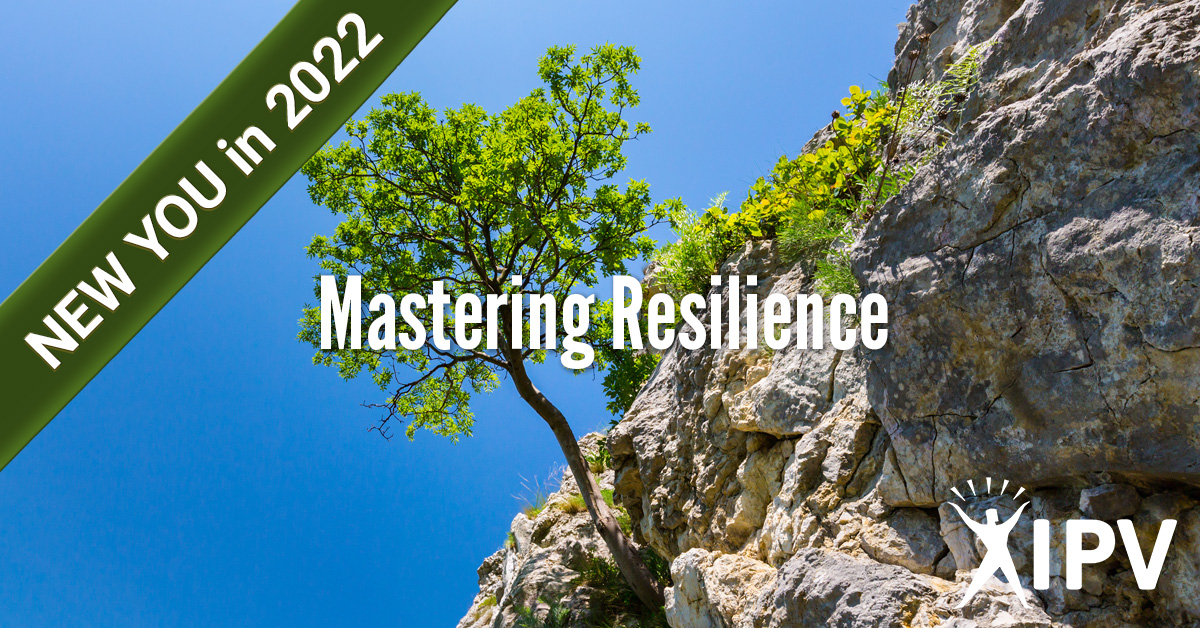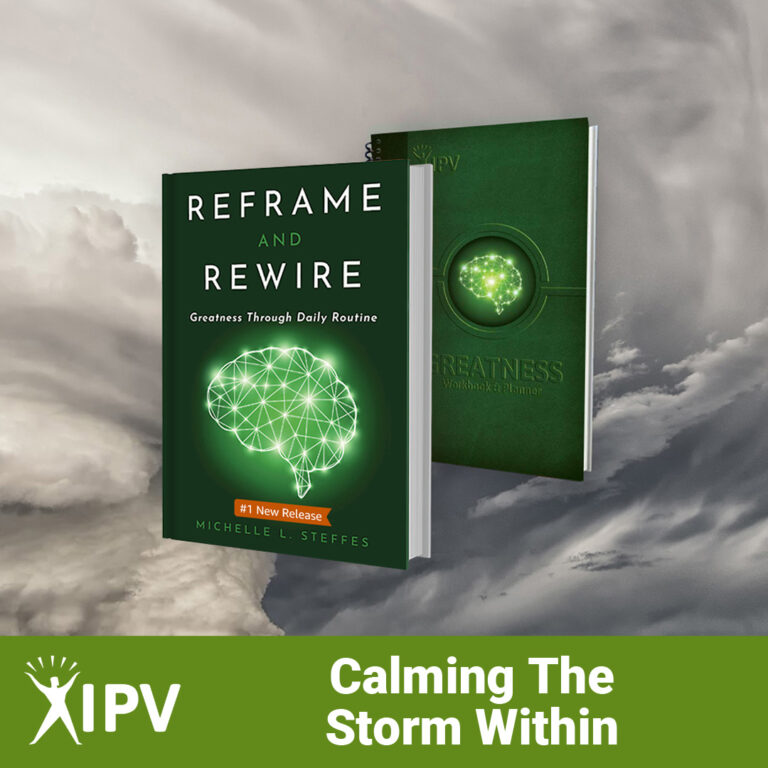
Further Your Understanding of the Impacts of Change
At the end of the previous episode in the Resilience in Times of Change podcast, Michelle continued her discussion on the cycles of change. So here’s the question posed in this episode: What is the number one reason we struggle? What is the primary roadblock to adapting to, learning from, and accepting change? The answer is simple, and some of you may already know it, but training your brain to overcome it can be more complex.
Listen to the fifth episode below, or scroll below the player to read the full transcript!
Listen to "Resilience in Times of Change: Episode 5"
Welcome to Reframe and Rewire, Greatness Through Daily Routine. This podcast designed to alter your minds sets and transform your day-to-day, from the second you open your eyes to you close them at night, adopting what I would call a success routine. This series is liable to change your life. It’s never the big things that you do, but the littlest things you do every day that make the biggest difference. And now onto the podcast. Thank you for joining.
Well, welcome back to the podcast as we continue in this series on Resilience In Times of Change, a course on resilience. Well, we just got through the cycle of change, and there were seven total stages or components to that. So I would encourage you if you’re just now joining to jump on and re-listen to that. Each of these in my series is only about seven to eight minutes, so it doesn’t take that long to catch up. But these are all critical.
It’s a progressive series. It’s an important series. It is the number one most requested keynote and workshop that’s been on my calendar for the last two years globally. I’ve talked to multiple large companies as well as even smaller companies that needed and wanted this particular topic. And it’s been very, very well rated. So I hope that you’ll stay with us throughout the series. I did include the last handout on the cycle of change if you want to take a look at that, and I gave you specific instructions in the podcast for you to follow through on. I hope you will.
All right. So here’s the question I have today as we move forward. What is the number one reason we struggle? Why do we struggle so much with resilience, with learning, how to get through change, with dealing with the issues that we face today that are sometimes almost crippling in our minds, in our hearts? And many times I’ll ask this in a group setting and see if anyone gets it right.
Maybe you’re thinking of it already. Any answer you give is correct, but there’s one main answer I’m looking for, and it is fear. So whether you were thinking rejection, illness, social or societal chaos, job security, finances, family concerns, risk taking, failure, loss. They are all tied into fear. So that’s the number one problem here.
Now just like with the cycle of change, when we can see where the issue is, it gets a lot easier to treat the illness. So diagnosis is first, right? That’s always got to happen first before we can get to the bottom of the issue and solve it. So when it comes to stressor, fear, we all understand the fight or flight response, which releases adrenaline and cortisol. Those are two of 60 total neurochemicals that we release in emotional states.
So what I mean by emotional states is your state of mind at any particular given moment based on thoughts, reactions, or potentially even circumstances. And maybe all of the above. So when you have adrenaline or cortisol, it paralyzes the frontal cortex of the brain, and we need to understand that. And then and by so doing, if we continue in that fear and we don’t do anything, if I don’t make any change or shifts in our perceptions, we don’t move through that cycle of change, or we just stay angry or upset or offended. Then what we end up with is things like reduced attention. People will be talking to us, they’ll go right over our heads. Or lower depth of perception. So we may have to read something five or six times. We still don’t know what we just read.
Emotional distress is very common when it comes to a lot of stress and or fear. And so our emotions are all over the board. We can’t seem to predict them and we can’t seem to control them. And then health issues begin to set in. And it’s a fact that 85% of doctor visits are rooted in stress. Okay? So everything from headaches, to cancer, body aches, joint aches, chronic pain, sicknesses, bowel disorders, abdominal issues. All these things are really coming out of a root of stress. So we need to realize that, diagnose it correctly, and then begin to change it.
Poor performance is a result, because if you’re paralyzing the frontal cortex of your brain, obviously it’s going to give you a very bad ability to focus. Clearly you’re going to have buckshot time management where you’re kind of here, here, here, here, here, and you’re never really getting anything done. You feel like you can’t seem to rise to your fullest potential. And we did address potential in why resilience is so critical to that piece. We did that in, I think it was the second or third part of this.
And then sleeplessness is a result. So now when you start to affect your sleep, your quality of sleep, that can affect your performance in all these other issues too. And especially it affects your brain. But melatonin is known to actually be suppressed as a result of a release of cortisol and especially too much cortisol.
These are all things we’ve got to understand, because as much as you’d like to think that you can rise above it and that you can just be ornery, irritable, stressed out and freaked out, and that you can handle it, guess what? Your body says otherwise. Okay? These are just absolute facts about how the body and the mind function. You cannot change that. It is what it is.
Now, if you stay in stress or fear too long, you begin to create cellular changes. So you shrink the hippocampus, which is a memory center. Now you’re going to forget things more frequently. You’re going to cause the amygdala hijack, which is the emotional center of the brain. The amygdala is, rather. It’s an almond shape at the back of the brain. And when that is affected, now you are struggling with having your emotions go all over the board. Again, very physical, very real, very tangible changes that occur as a result of stress and fear. And you can’t stop it. All right?
Now, when I say you can’t stop it, I’m not saying that you can’t fix the problem, because that’s exactly why we’re talking about this in this series. And we’re going to get to the solutions. But what I’m saying is that you can’t deny it and pretend like, “Oh, well, that doesn’t affect me.” That’s not true. Okay? It does affect you. And then as you stay in it so long, you begin to actually cause many of your neural networks to erode in a way. They begin to look more emaciated. They lose a lot of the connections and the connectivity. Your brain does not light up like it does. In fact, a depressed brain looks very dark, especially the frontal cortex region is struggling lighting up, and overall dysfunction has set in. And this desire for life and hope begins to fade.
Now I’ve got pictures and photographs of what the brain looks like under stress, so nobody can tell me otherwise. Now I’m going to move into more of this tomorrow and especially into some more understanding and solutions. So please come back. This is Michelle Steffes, Reframe and Rewire. Thank you for joining.
Would your company or organization benefit from a group coaching series on Resilience?
Want More? Get the Book!
Amazon #1 New Release
Now an Amazon #1 New Release, Reframe & Rewire is an in-depth, step-by-step study guide on the science of habits.
Get insight, tools, and inspiration to build a routine that will empower every aspect of your life. Pages filled with compelling statistics, case studies, and elements of neuroscience and human physiology.
You will discover irrefutable science-backed evidence that, when applied, will transform your state of mind, ultimately giving you total control of your life, career, and destiny.
Through small, daily changes utilizing this interactive journey, you will discover new methods of thinking and living that will revolutionize your world and propel you to GREATNESS!
In This Book:
- 7 Actual Case Studies
- The Brain Science Behind Habits
- Retraining Your Brain Through Cognitive Restructuring
- Heart Science, Energy, and the Law of Attraction
- Powerful Principles of Influence and Greatness
- Tips and Tools to Build Your Success Routine






